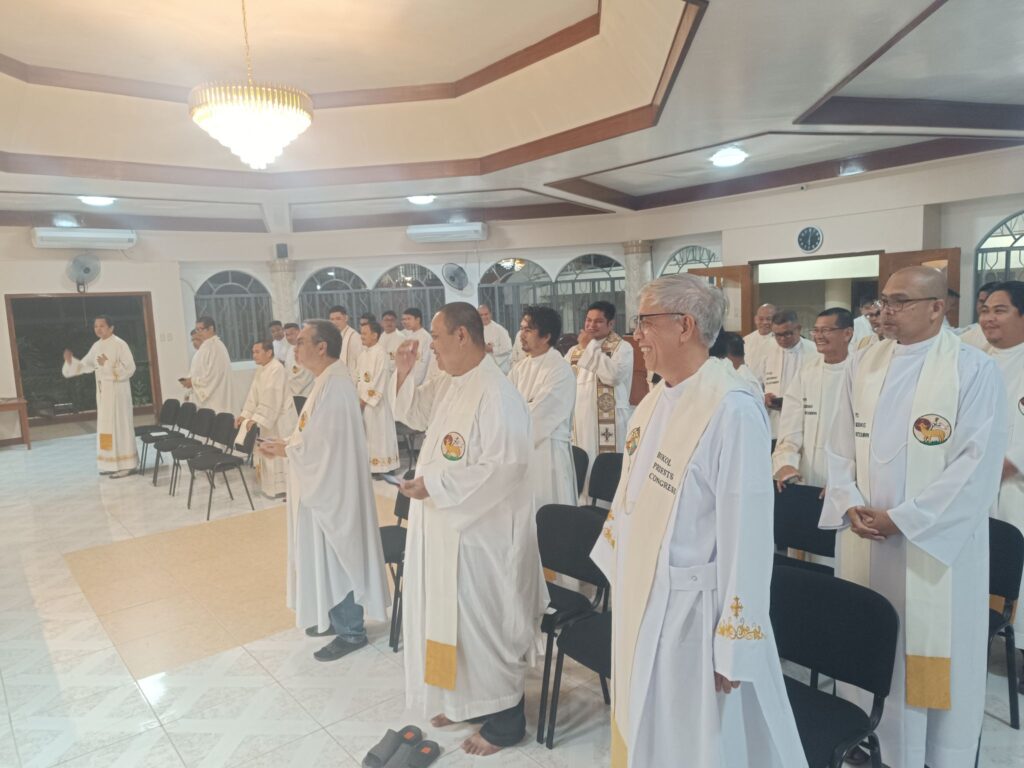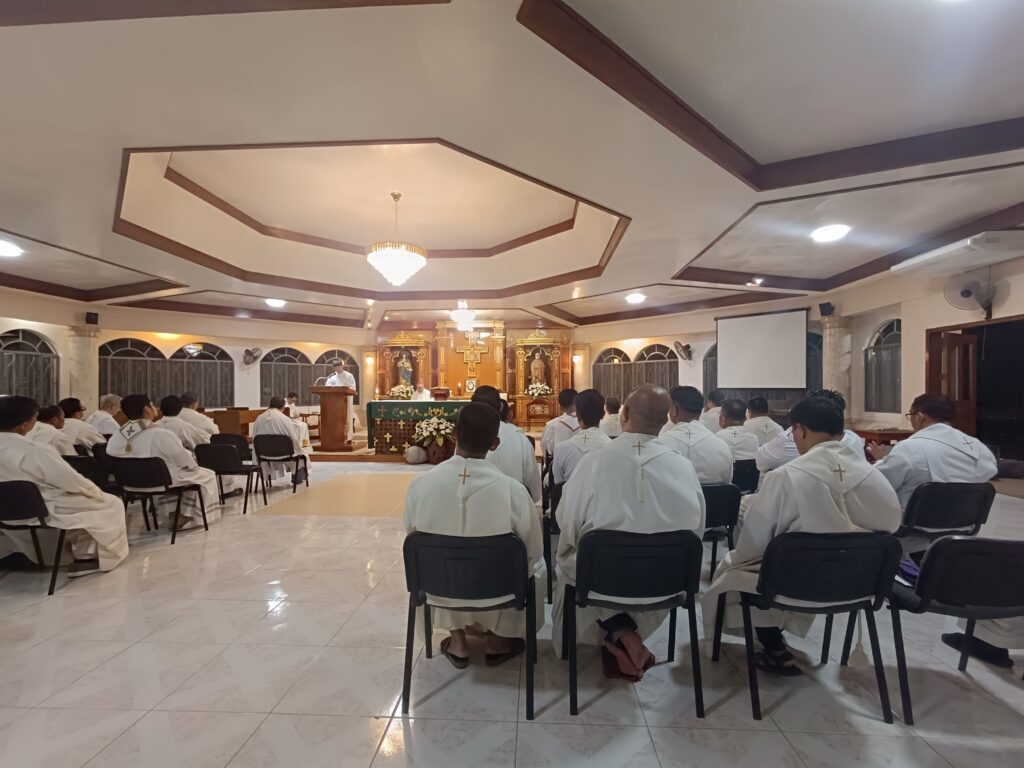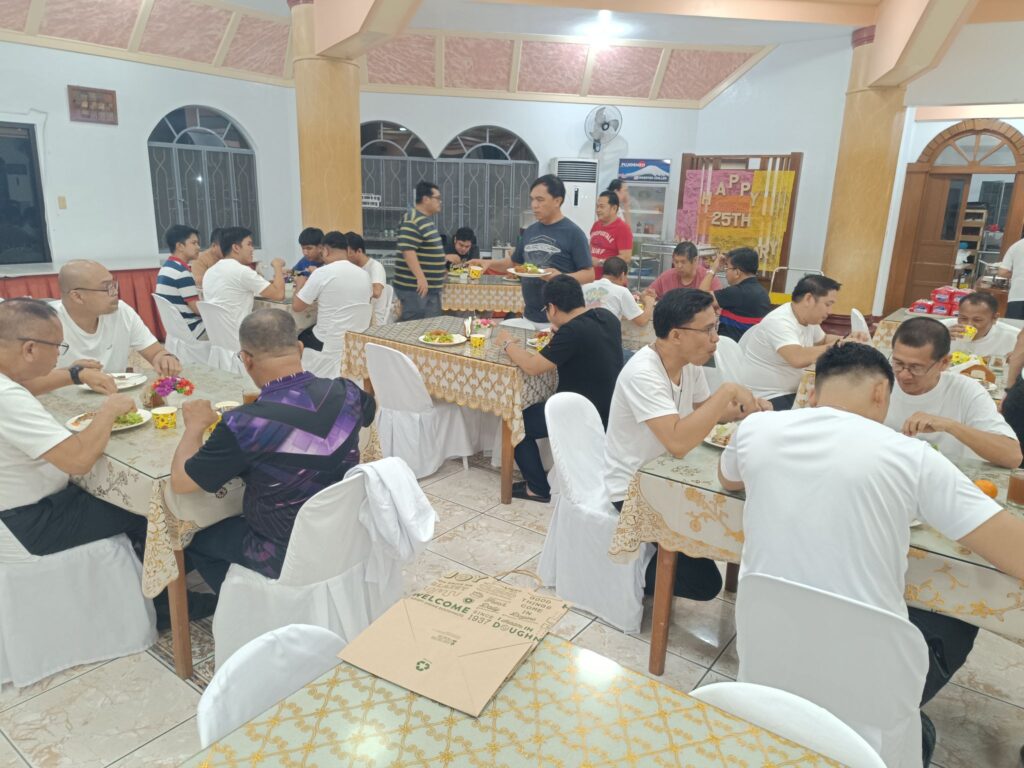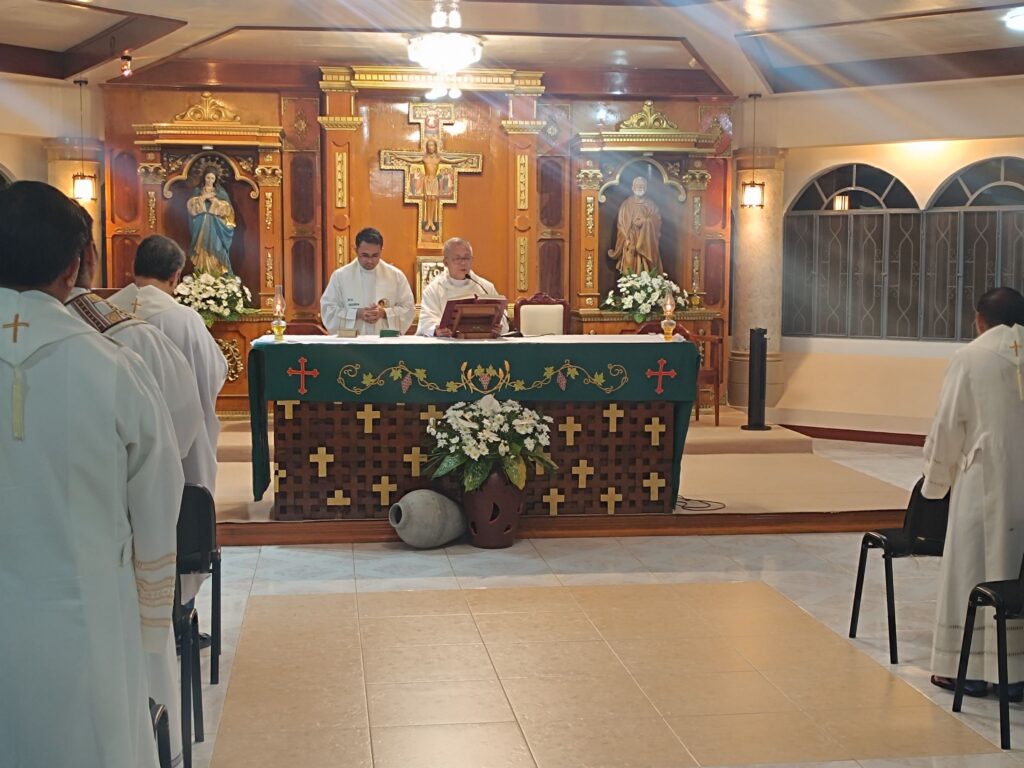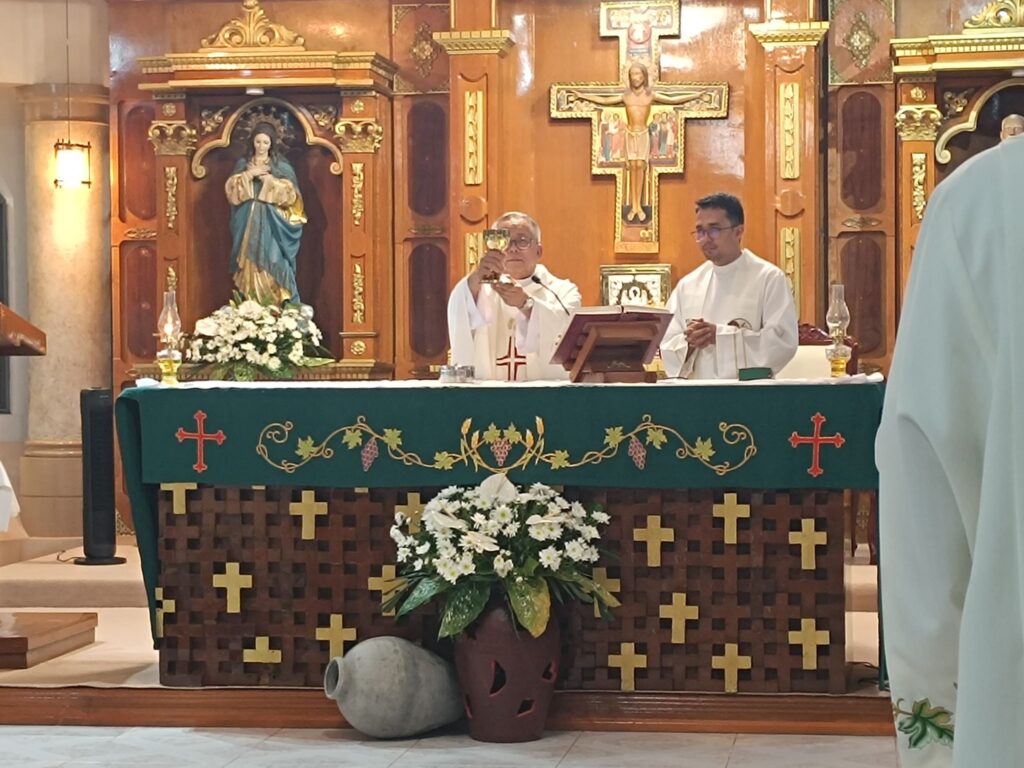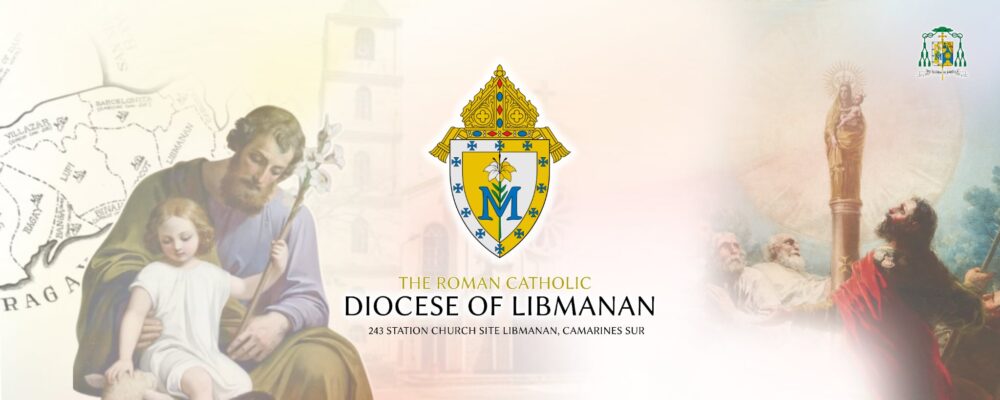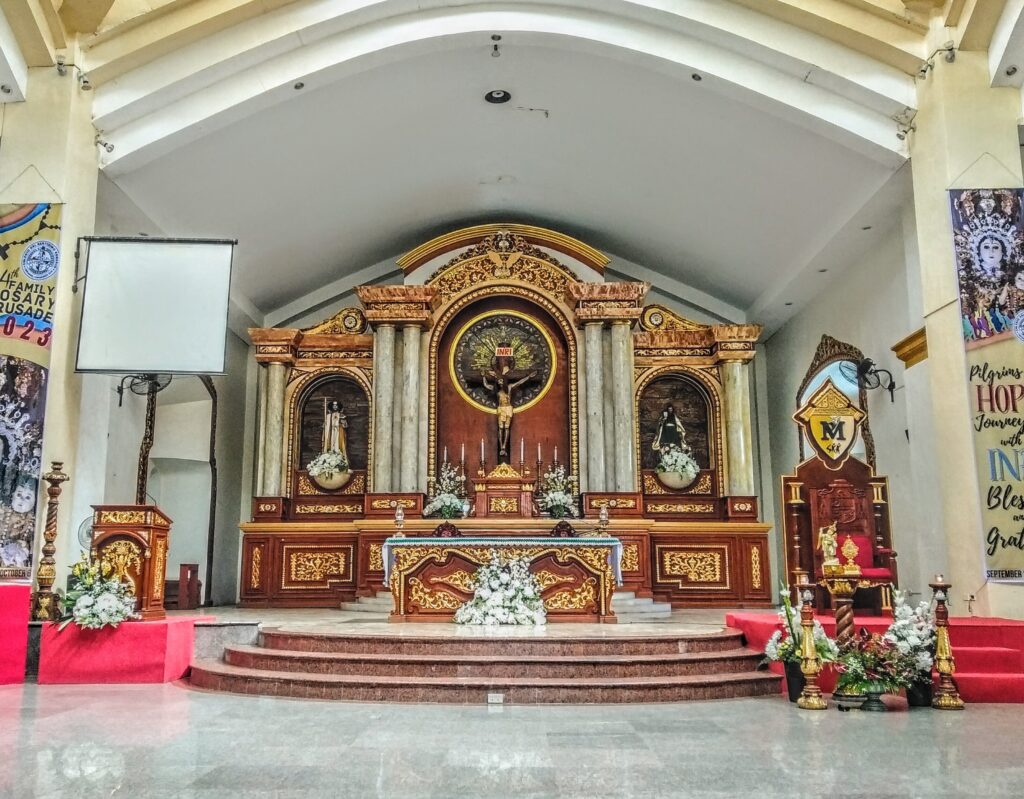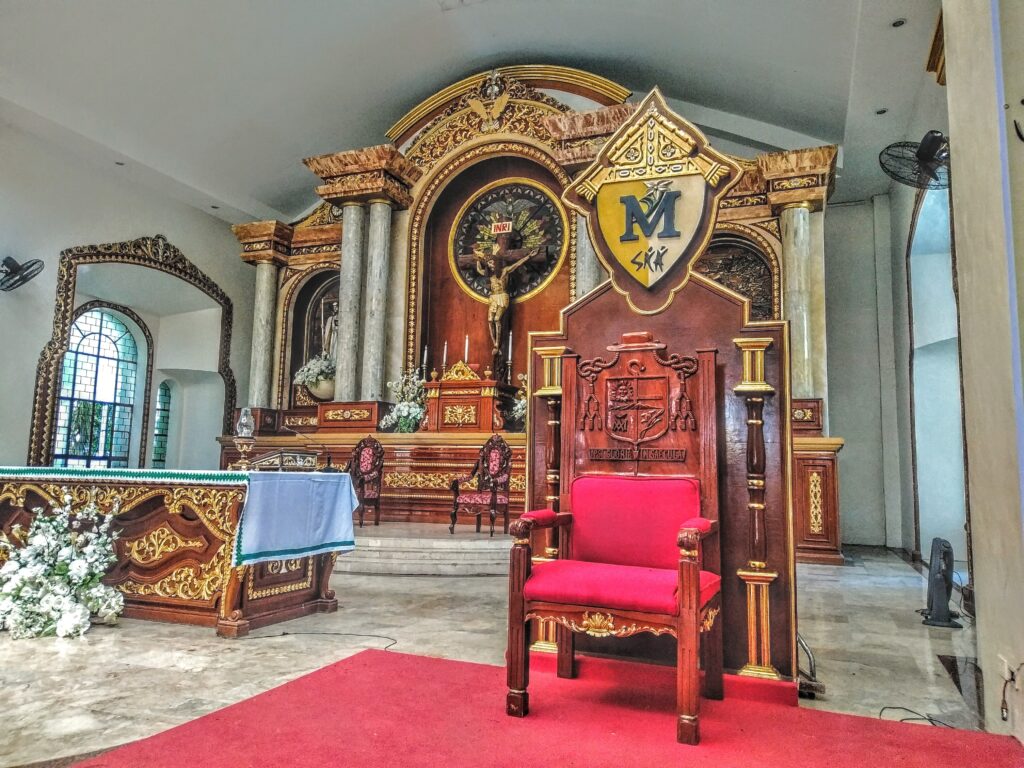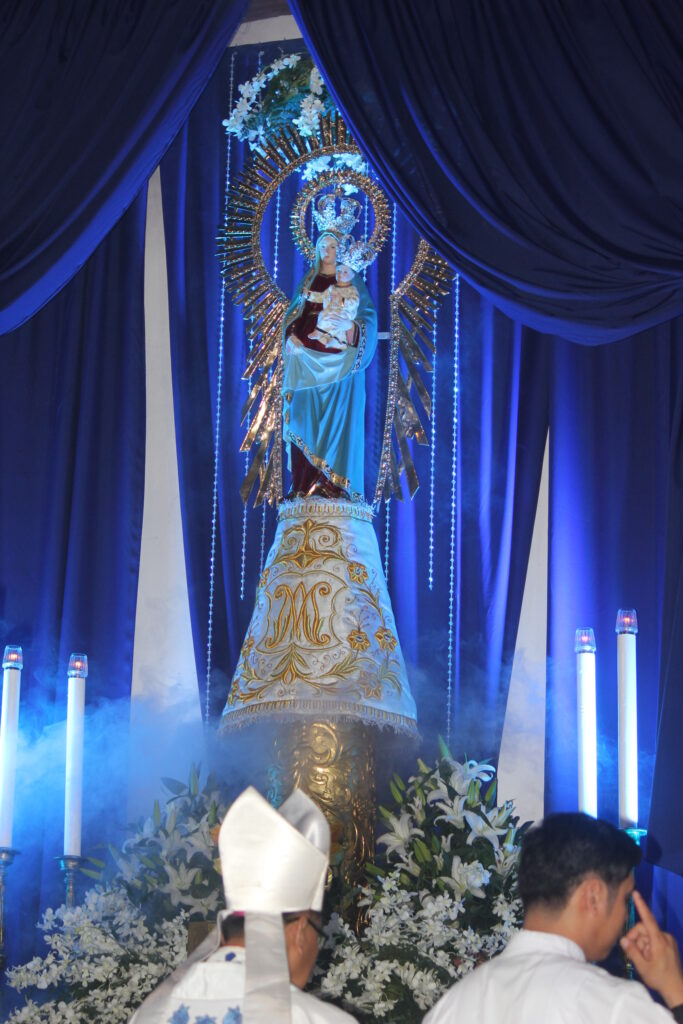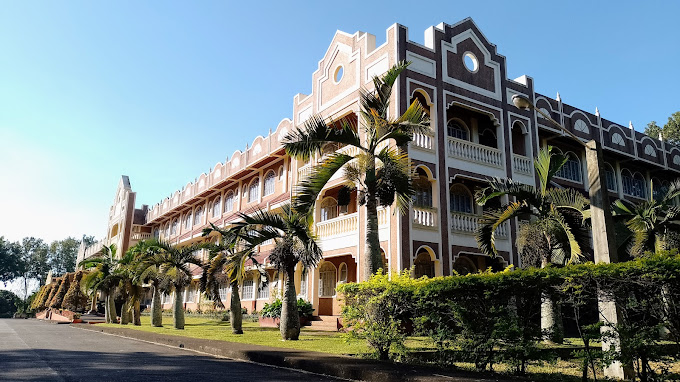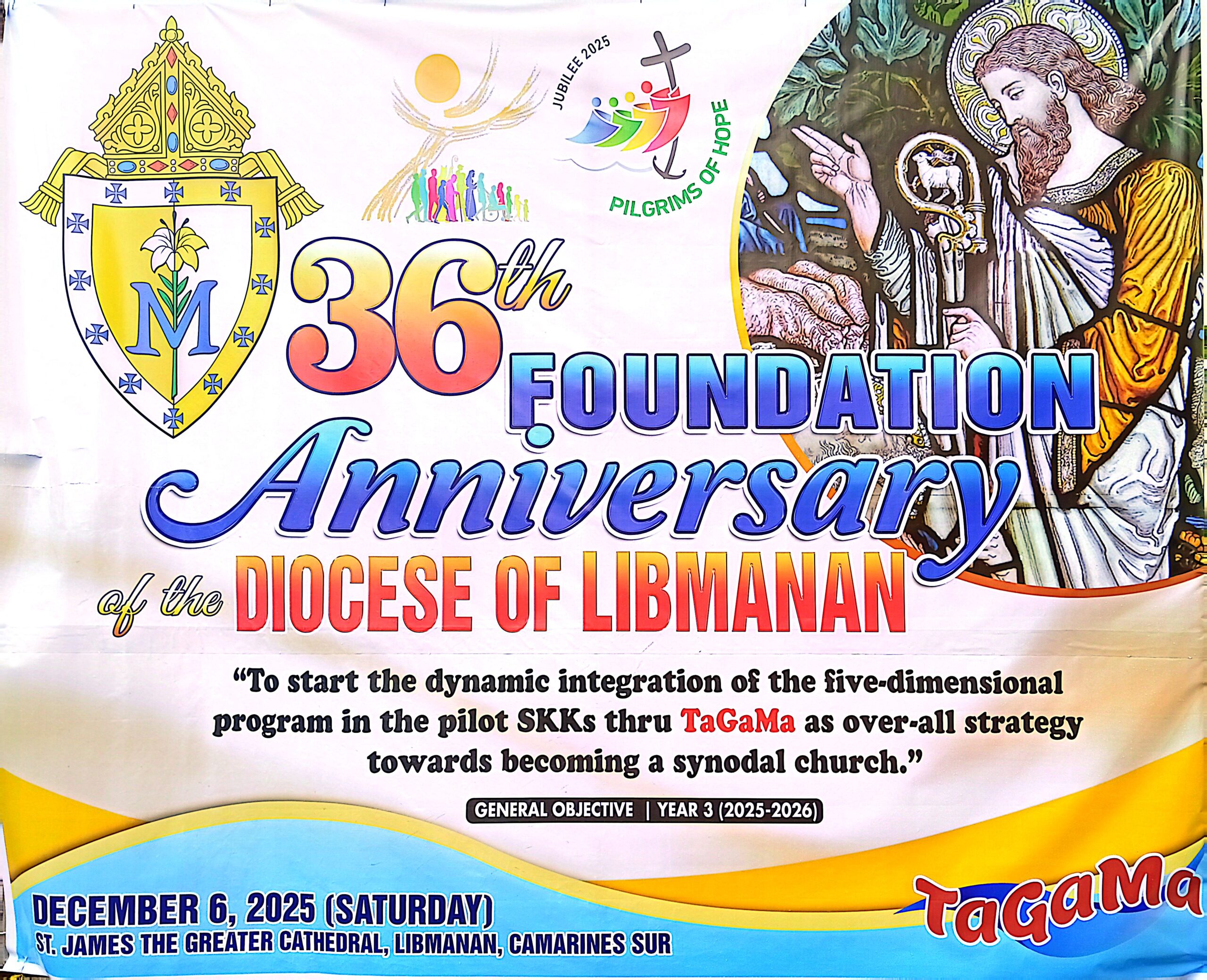The Capuchin Retreat Center, San Sebastian (Lipa City). Priests of the Diocese of Libmanan arrived here early morning of November 4, 2024 for their annual retreat. Fresh from a hectic weekend due to All Saints’ Day and All Souls’ Day, which coincided with a Sunday, the priests welcomed the opportunity for a much needed rest that the retreat would afford them. They had to wind up services in the parishes early Sunday evening so they could catch the bus, travel the whole night and be at the retreat site Monday morning.
The facilitator for the annual exercise is Rev. Msgr. Noel Deslate of the Archdiocese of Capiz, former staff member of the CBCP-run Galilee Center for priests in Tagaytay City. It should be recalled that Msgr. (then Fr.) Noel also facilitated the retreat of the Libmanan Clergy at the St. Paul Center of Spirituality in Alfonso (Cavite) in 2016. The organizers of this year’s retreat, under the leadership of Fr. Arvin Olivan, the Episcopal Vicar for the Clergy of the diocese, took interest in requesting Msgr. Noel to accompany the priests once more because of his background in clinical psychology. Given his expertise, Msgr. Noel decided to focus his sharing on the general theme, “How to deal with issues and crises in the priestly life and ministry”.
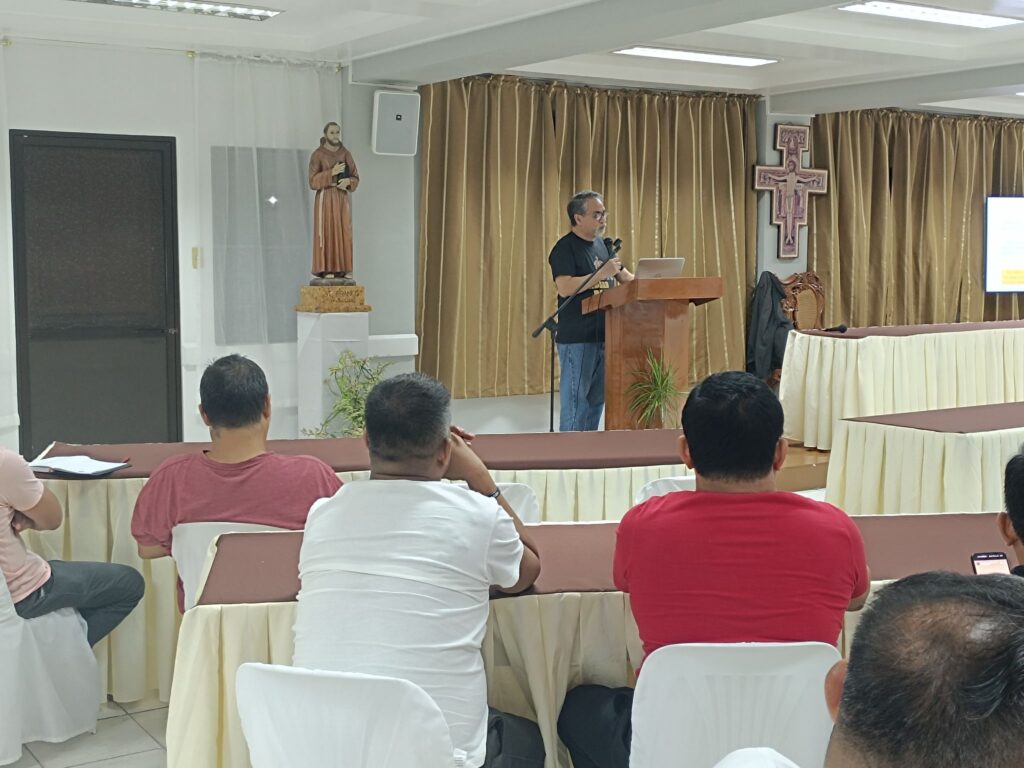

The first session immediately started in the evening on the first day itself. As in the past, Msgr. Noel chose as his point of departure a biblical passage, that is, the story of the fall in Genesis 2, eventually drawing parallel between the fall of Adam and Eve and the fall of a priest from grace when in Crisis. A priest falling away speaks of his choice, actually a misuse of his freedom, to separate (and eventually hide) himself from God, as what happened to our first parents.
On the second day, on the 5th of November, Msgr. Noel spoke on two familiar but unexplored topics for most of the priests, that is, stress and depression. He described stress as a “nonspecific” response (emotional, mental or somatic) of the body to any demands. It occurs where there are demands on the person which exceed his adjustive resources (equilibrium, rhythm). He said it is important to identify and determine one’s stressors (the causes of stress) if one is to manage it. Since stress is hurtful and can be self-destructive in many ways, he stressed (no pun intended) that there is a need to cope with it, and the manner depends on whether the stressor is external or internal. One may have to modify the situation more prone to stress or select the situation less prone to it.
Continuing on, Msgr. Noel explained that the inability to manage chronic stress will lead to anxiety and eventually depression. Anxiety that leads to depression and burn out can be mild, moderate or chronic, depending on its regularity and intensity of occurrence. Describing each of these levels of anxiety, he wound up by listing not only the general signs anxiety but also those of depression. Inability to deal with such symptoms can lead to crisis and inappropriate coping/behavior. At the end of the sharing, Msgr. Noel echoed God’s question to Adam and Eve in Genesis, “Where are you?” He said this question is a call of love, a call of sorrow, a call of justice!






Day 3 of the retreat (6 Nov) focused on the issue of addiction. During the morning session, Msgr. Noel pointed out that the inability to manage stress, anxiety and depression could lead to self-defeating copings, one of which is addiction. First, he focused on alcohol and substance addiction, saying that said addiction may go through four stages: use, intoxication, abuse, and finally dependence. He listed some signs and symptoms of substance addiction, prominent of which are tolerance (i.e., the need to increase amounts of alcohol due to diminished effect), withdrawal, escalation, lack of control/ unmanageability, obsession/ pre-occupation and compulsion, disruption of social, ministerial, and recreational activities, and continuing use despite adverse effects. In fact, he also said, similar signs and symptoms can also point to sex addiction. There is addiction of whatever it is if a pattern of behavior could be established. Escalation occurs as one moves through three levels of addiction, from bad, to worse, to worst (if these levels were to be evaluated). He concluded the sharing by indicating the early signs of sexual addictive behaviors.

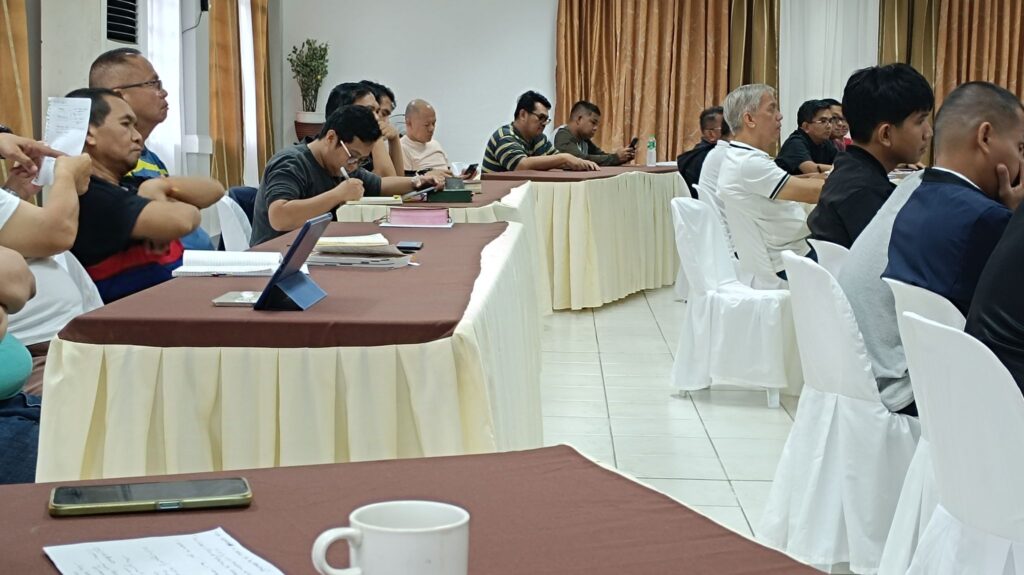



If the problem of addiction, however, were to be treated, knowledge of what causes it should be the first effort in that direction. That, in fact, was the first agendum in the afternoon session. Msgr. Noel identifieded four causes: neuro-biological, psychological, social-cultural, and spiritual causes. One needs to find the antidote to these causes if one were to recover from addiction. The first step to recovery is through abstinence and then by withstanding the withdrawal effect that it instantiates. There may be no cure to addiction, but there is a way forward (treatment) towards recovery and healing. In the words of Msgr. Noel, “Abstinence is the first step to recovery; there can be no recovery without abstinence! Thus, the first thing one has to do is basically restrictive; external limits and controls that will arrest the sexual acting out. There must be no compromise on this. Motivation is crucial!”



On the fourth day, the retreat facilitator presented three made-up cases of clerical sexual misconduct in order scrutinize the dynamics involved. The first premise is that every misconduct is a violation, namely,
- Violation of ministerial trust with others, even if it appears consensual; with adults, it is a canonical offense but with minors, it is a canonical crime (delict).
- Violation of priestly integrity and identity.
- Violation of Christian identity and discipleship (sin).
More important to realize that with the misconduct, there are co-existing problems, i.e., loneliness, a distorted and/or repressed view of sexuality (unmet need for intimacy), an imbalance life (e.g. too much work) that leads to a deficit in spirituality and prayer life. This is compounded still by underlying problems such as history of the cleric’s unresolved trauma and abuse due to deficits in parental attachment history and disruption in attachment history.


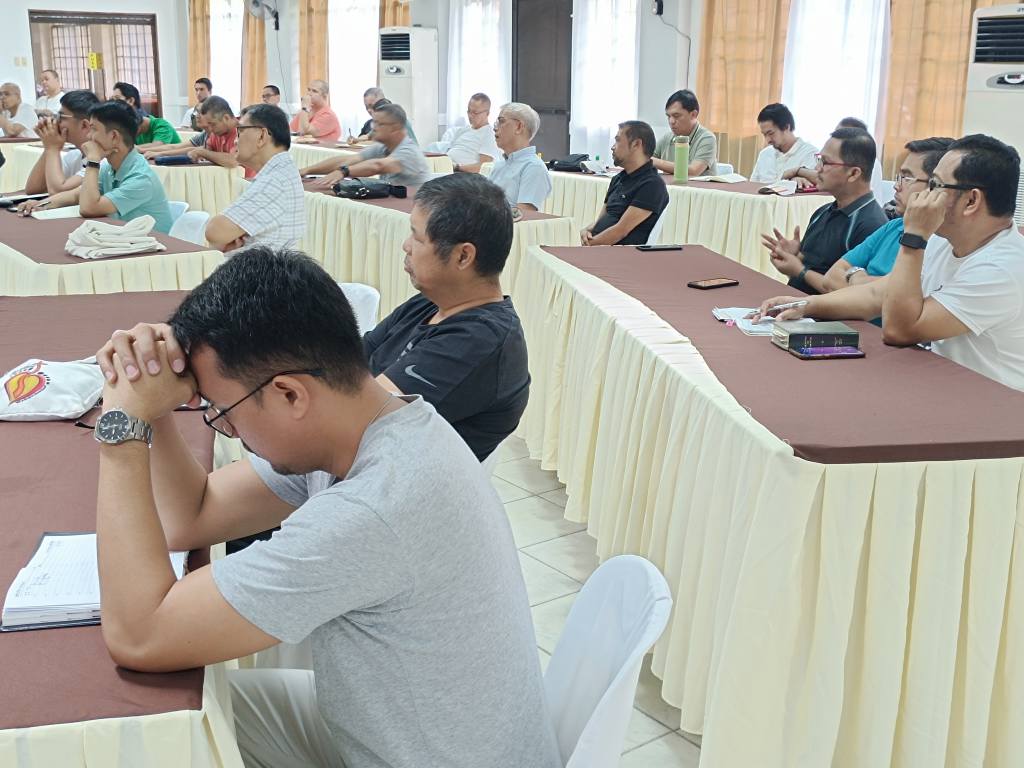

In conclusion, Msgr. Noel emphasized that to rise up from the quagmire that is clerical sexual abuse, there is a need to move from the separation that is cause by abuse to the exercise of freedom in and with the Divine Will. On that note, the retreat ended on a positive mood. When human freedom is conformed with God’s will, there is life and perfection (immortality); dignity and order; harmony, beauty, and integration of faculties; equality despite differences of gender and roles; and the grace of garment (innocence) that dissipates fear and shame.
The celebration of the Eucharist on the fifth day (November 8) presided over by the bishop punctuated the fruits gained from the five-day gathering of reflection, prayer, sharing and priestly fellowship.
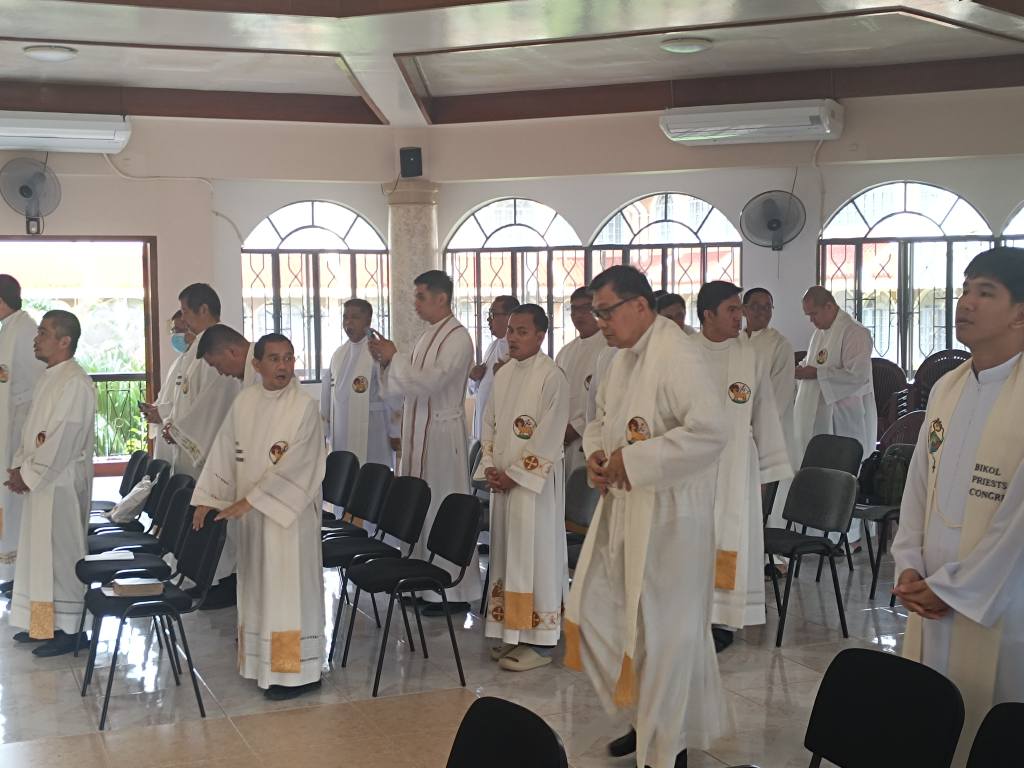

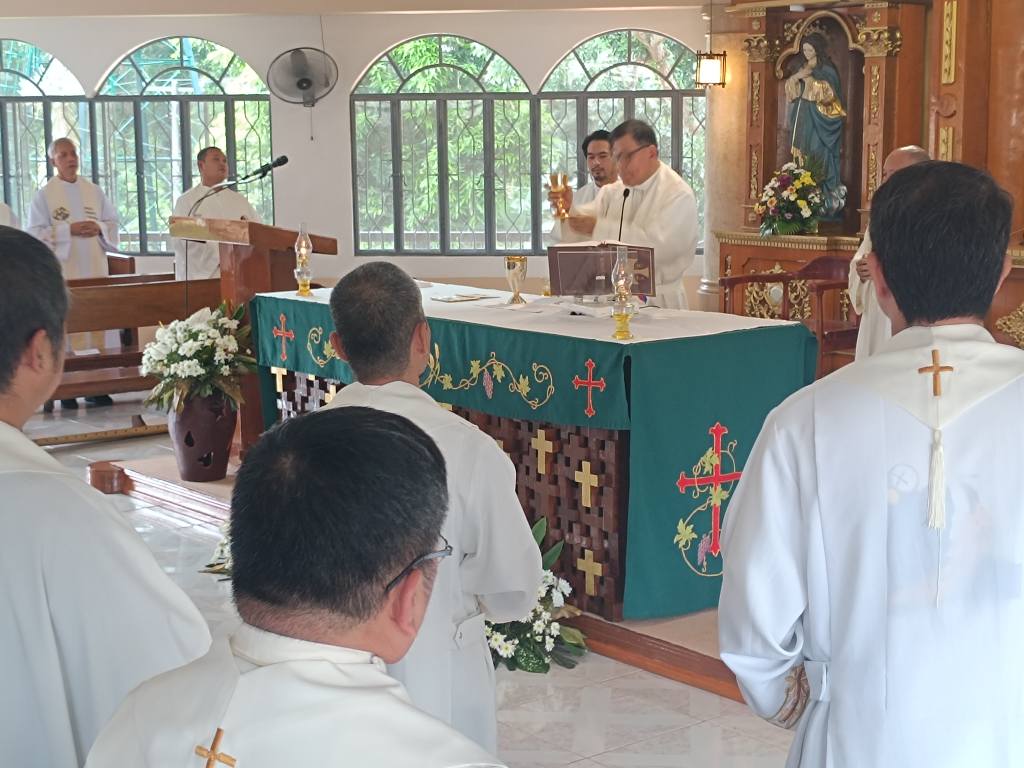

More photos of the opening mass on November 4, 2024…..
